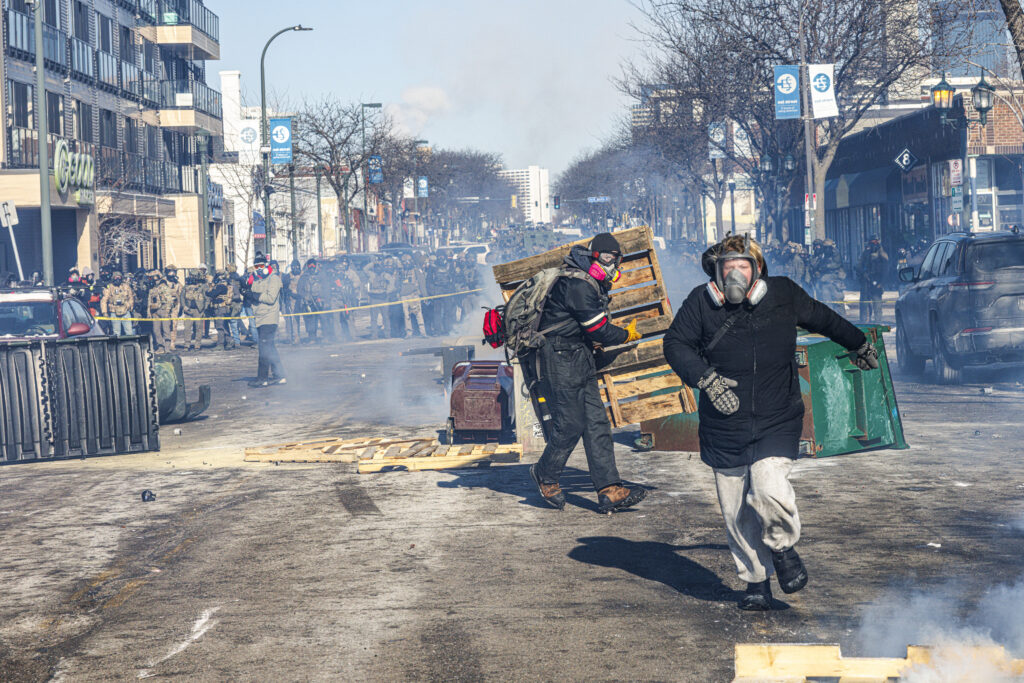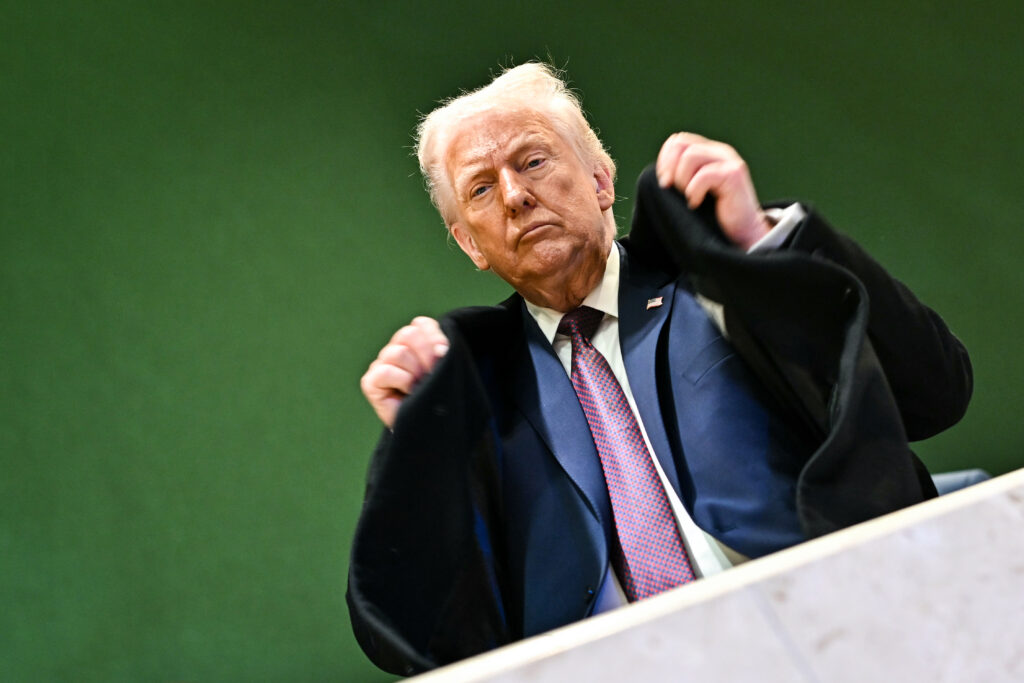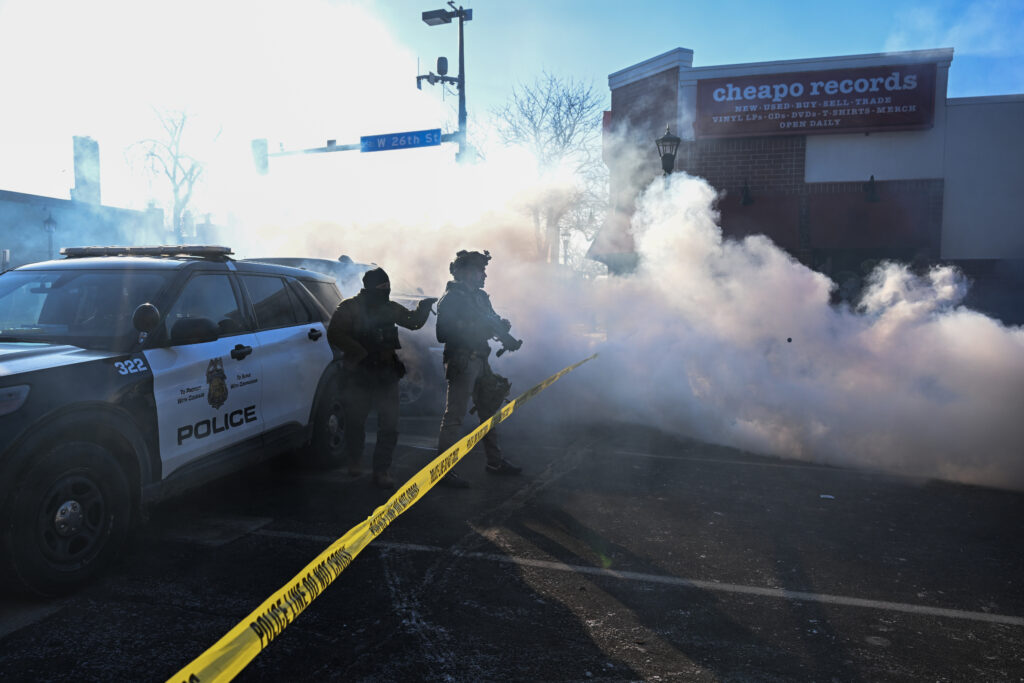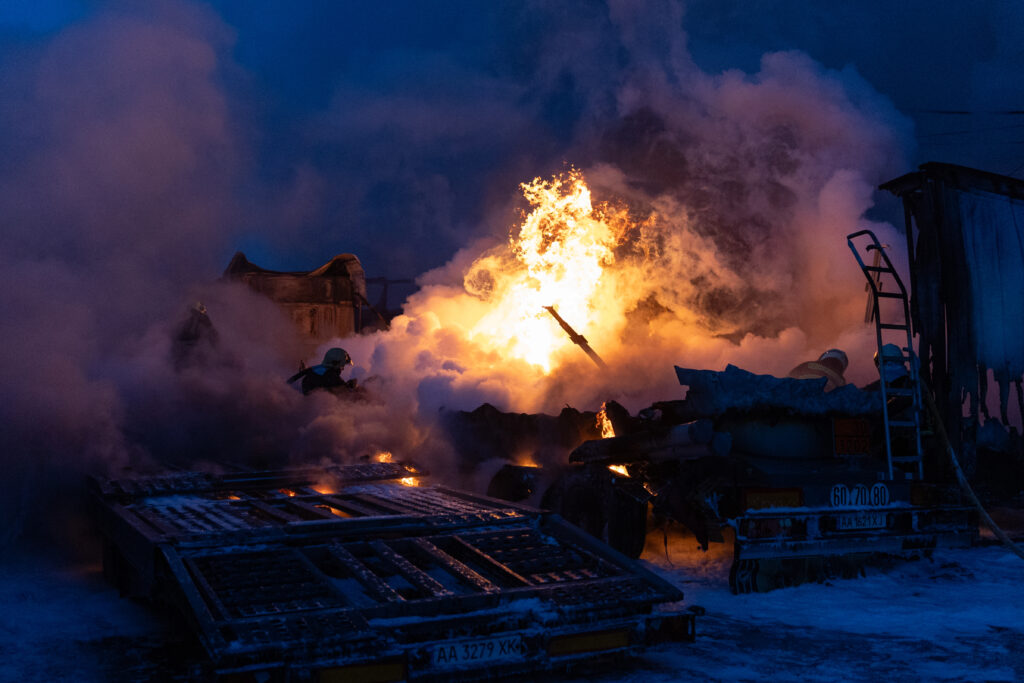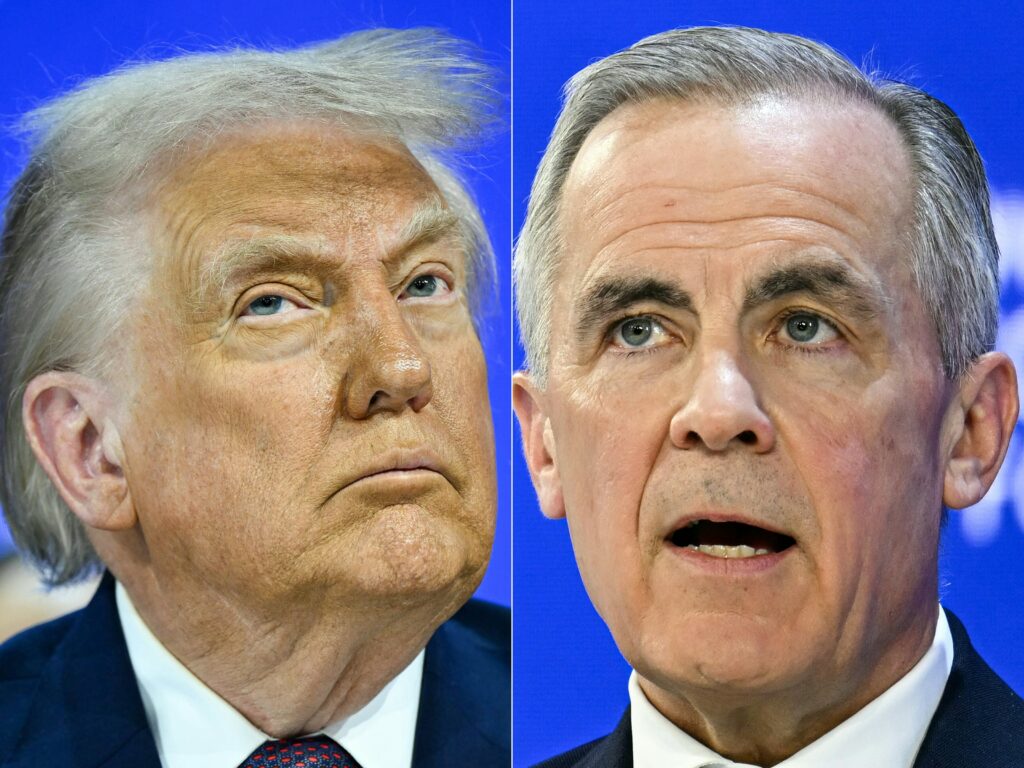Un second Américain tué à Minneapolis par des agents fédéraux
Un Américain de 37 ans a été tué samedi par des agents fédéraux à Minneapolis, ont annoncé les autorités de cette ville du nord des Etats-Unis, secouée depuis plusieurs semaines par des manifestations contre la présence de la police de l’immigration (ICE).Sa mort intervient près de trois semaines après celle de Renee Good, une Américaine également âgée de 37 ans, tuée par balle par un agent de l’ICE dans cette même ville.Le gouverneur démocrate du Minnesota, Tim Walz, a exhorté à ce que les autorités locales, et non fédérales, soient à la tête des investigations. “On ne peut pas se fier à l’Etat fédéral”, a-t-il affirmé, avant de fustiger l’ICE qui sème selon lui “le chaos et la violence”.Une vidéo circulant sur les réseaux sociaux et à l’authenticité confirmée par les autorités montre plusieurs agents avec des gilets affublés du sigle “Police” lutter pour amener une personne au sol puis la frapper plusieurs fois. Un tir résonne alors, les agents s’écartent de l’homme allongé dans la rue, avant de tirer à plusieurs reprises sur lui.- “Au moins dix coups” tirés -Selon le ministère américain de la Sécurité intérieure (DHS), l’homme était armé d’un pistolet semi-automatique et avait “violemment résisté” avant que l’agent, “craignant pour sa vie”, ne lui tire dessus.Sur X, le DHS a publié une photo de l’arme présumée et a affirmé: “Cela ressemble à une situation où un individu voulait commettre un maximum de dégâts et massacrer des forces de l’ordre”.Mais selon une analyse des images réalisée par le média d’investigation Bellingcat, “quelques instants avant que le premier coup ne soit tiré”, on peut voir l’un des agents s’éloigner avec un pistolet semblable à l’arme postée par le DHS.Ensuite, “deux agents différents tirent manifestement avec leurs armes, et au moins dix coups sont tirés au total”, poursuit Bellingcat, précisant que “la plupart” l’ont été alors que “l’homme était déjà allongé au sol sans mouvement”.Le chef de la police de Minneapolis, Brian O’Hara, a indiqué lors d’une conférence de presse que l’homme habitait la ville, possédait un permis légal de port d’arme et n’était pas connu des services de police.Il s’agit d’Alex Pretti, un infirmier de 37 ans, a annoncé le syndicat de fonctionnaires dont il était membre.- Appels au calme -Donald Trump a justifié l’action des agents fédéraux et a rejeté la faute sur les élus démocrates locaux.”Le maire et le gouverneur poussent à l’insurrection avec leur rhétorique pompeuse, dangereuse, et arrogante”, a accusé sur sa plateforme Truth Social le président américain, pour qui il faut laisser la police de l’immigration “faire son boulot”.Lors d’une conférence de presse, Tim Walz a critiqué le fait que le gouvernement Trump se “soit précipité pour juger en 15 minutes” ce qui s’était passé au moment des tirs et avant.Le maire de Minneapolis, Jacob Frey, a lui appelé Donald Trump à mettre fin aux opérations de l’ICE dans sa ville et à “rétablir la paix”.Le chef de la police locale a également appelé au calme, malgré la “colère” et les “questions autour de ce qui s’est passé”.- “Escalade” -Maria, une habitante de 56 ans rencontrée dans la rue par l’AFP et qui n’a pas souhaité donner son nom de famille, dit être venue sur place pour “soutenir les gens qui manifestent pacifiquement” et leur apporter des réchauffe-mains alors que la température est descendue sous les -20°C. Mais la situation est en pleine “escalade”, puisque les agents de l’ICE “attaquent et terrorisent” les habitants, a-t-elle affirmé.La veille, des milliers de personnes avaient déjà défilé dans le centre de Minneapolis pour protester contre les opérations antimigrants de l’ICE, au moment où les autorités américaines tentaient de calmer l’indignation provoquée par la détention d’un garçon de 5 ans.Le nouveau décès samedi vient aggraver une situation déjà tendue par la mort de Renee Good le 7 janvier. Les élus démocrates locaux et les manifestants contestent la thèse officielle selon laquelle le policier de l’immigration, qui n’a pas été suspendu, était en état de légitime défense lorsqu’il a tiré sur cette habitante de Minneapolis.
Republicans eye ‘Trump-palooza’ convention ahead of US midterms
US President Donald Trump’s Republican Party has taken a step closer to staging a highly unusual party convention to prop him up and sell his message to voters ahead of crucial midterm elections in November.At a meeting in Santa Barbara, California, the Republican National Committee (RNC) voted Friday to amend party bylaws to clear the way for a planned midterm convention, as polling shows support for the 79-year-old president waning.The midterm elections, historically unfavorable to the party in power, is the key political issue of 2026 for Trump and Republicans, who control both chambers of Congress.RNC chair Joe Gruters however is upbeat that his party will retain majorities in both the Senate and House of Representatives.”We’re going to defy history, because we have the best president that ever lived,” he said. “What he’s done in a single year, most presidents can’t do in eight years.”Conventions organized by the main two US parties normally happen every four years, to officially anoint their presidential nominees before a general election.But this unconventional convention will be “a Trump-palooza,” Gruters said.”There’s no better way than to sell the message that the president has given us to the American people.”Jake Hoffman, a Republican state senator in Arizona, said the midterm convention “is a great opportunity to tell the story of Republican success.””Under President Donald Trump, the economy’s back on track, deportations are happening,” he said.However, a year after Trump returned to power, the warning signs have piled up showing that many American people are unhappy with his policies and performance — particularly on bread-and-butter economic issues.Beyond his devoted base of MAGA voters, a majority of Americans complain in polls about a president who cares too much about international ventures, such as Venezuela and Greenland, and who doesn’t do enough to bring down the cost of living.- Headwinds -Trump’s crackdown against undocumented immigrants — a key domestic initiative — is also being increasingly criticized by independent voters, as vivid images of masked agents roaming calm neighborhoods spread online.A controversial operation in Minnesota has also made daily headlines and resulted in the deaths of two American citizens by federal agents.Even Joe Rogan, the popular podcaster who supported Trump during his 2024 campaign, has likened the Trump administration’s tactics to those of Nazi Germany.Faced with such headwinds, Trump will campaign for the midterms as if these polls were a presidential race, White House chief of staff Susie Wiles said this week. – ‘This president cares’ -Republicans, especially in electoral swing states, are trying to sell the message that Trump’s policies, which include steep tariffs on imports from many countries, are putting the economy on the right track.”This president cares about the American worker,” Gruters said a week after the commander-in-chief, while visiting a Ford factory near Detroit, flashed a middle finger to an auto worker who challenged him about his past friendship with the late sex offender Jeffrey Epstein. Trump’s “Big Beautiful Bill,” a fiscal and spending law enacted last year, is starting to trickle into wages for Americans, said Michael McDonald, head of the Republican Party in Nevada. “As the law starts to take effect, it’s starting to bring it into the paycheck,” he told AFP.But for political scientist Wendy Schiller, turning the 2026 midterms into a referendum for or against the president is a double-edged sword as tariffs and cuts to health care coverage start to bite. “If he tries to tell everybody that things aren’t really that expensive and that the economy is great, he’s not going to be helpful to them, because voters do not believe that,” said the professor at Brown University.”The danger to the GOP (Republican Party) is that this midterm convention turns into a Trump loyalty show and then all their candidates get saddled with a president who is under water in the polls on every major issue.”
US immigration agents shoot dead another person in Minneapolis
Federal immigration agents shot dead a man in Minneapolis on Saturday, in the second fatal shooting of a civilian during the Trump administration’s unprecedented operation in the city, sparking fresh protests and outrage from state officials.The death came less than three weeks after US citizen Renee Good was shot and killed by an Immigration and Customs Enforcement ICE) officer.On Saturday, as after Good’s death, federal and local officials offered differing assessments of the man’s killing, while video of the altercation quickly spread online.Minnesota Governor Tim Walz called the shooting “horrific” and demanded state authorities lead the investigation.”The federal government cannot be trusted to lead this investigation. The state will handle it, period,” Walz told a press conference.Federal authorities controversially blocked local investigators from jointly probing Good’s death.The Department of Homeland Security (DHS) insisted the man killed Saturday, identified by local media as 37-year-old nurse Alex Pretti, “approached” agents with a pistol and then “violently resisted” being disarmed.However video of the incident, which AFP has not verified, shows Pretti on a snow-covered sidewalk apparently trying to shield a woman protester from being doused with chemical spray, when an agent pulls Pretti to the icy road.Several agents then struggle to detain him, and seconds later an officer opens fire on Pretti, whose body is then shot multiple times from a distance.Crowds quickly gathered in the wake of the shooting, despite the sub-freezing temperatures and making state law enforcement unable to secure the scene, Minnesota Department of Public Safety Bob Jacobson told a briefing.US President Donald Trump meanwhile ratcheted up his war of words with Walz and Minneapolis Mayor Jacob Frey, accusing the Democratic leaders of “inciting insurrection” with their rhetoric. Trump has previously threatened to send troops to Minnesota by invoking the Insurrection Act.- ‘End this operation’ -Frey urged Trump to end the federal immigration operation, which has sparked sometimes violent demonstrations.”This is a moment to act like a leader. Put Minneapolis, put America first in this moment — let’s achieve peace. Let’s end this operation.”Police chief Brian O’Hara said an “incredibly volatile scene” had erupted after the shooting and urged residents to avoid the area. Officers who declared the protest an unlawful assembly deployed clouds of tear gas as the crowd grew and used dumpsters to make blockades on the road in the busy south Minneapolis neighborhood known for its restaurants.Local resident Maria, 56, told AFP the situation in the city was “escalating.””They’re attacking and terrorizing our communities right now,” she said describing the situation as “white terror.” DHS wrote on X that “an individual approached US Border Patrol officers with a 9 mm semi-automatic handgun” and that its officers tried to disarm the man who they say “violently resisted.””Fearing for his life and the lives and safety of fellow officers, an agent fired defensive shots. Medics on scene immediately delivered medical aid to the subject but was pronounced dead at the scene,” DHS said.O’Hara said police believed the victim was a “lawful gun owner with a permit to carry.”Minnesota allows the open carrying of firearms with a permit.- ‘Horrific shooting’ -Earlier, Walz said he had discussed “another horrific shooting by federal agents” with the White House.”Minnesota has had it. This is sickening,” he said on X. “The President must end this operation. Pull the thousands of violent, untrained officers out of Minnesota. Now.”Minnesota Representative Ilhan Omar called the shooting “an execution” and accused Trump of transforming Minneapolis into a “war zone.”Thousands of ICE agents have been deployed to the Democratic-led city, as Trump presses a sweeping campaign to deport undocumented migrants.Minneapolis has been rocked by increasingly tense protests since federal agents shot and killed Good, a US citizen, on January 7.An autopsy concluded that the killing was a homicide, a classification that does not automatically mean a crime was committed.Public outrage was rekindled this week by the detention of a five-year-old boy as agents sought to arrest his father.The Minnesota Timberwolves on Saturday canceled their NBA fixture in the city following the incident, and an afternoon carnival parade was also scrapped.
De nouveaux pourparlers entre l’Ukraine, la Russie et les Etats-Unis à Abou Dhabi la semaine prochaine
Les pourparlers entre délégations ukrainienne, russe et américaine se sont achevés samedi à Abou Dhabi après des discussions “constructives” selon le président ukrainien Volodymyr Zelensky, avant de nouvelles discussions la semaine prochaine.”Beaucoup de choses ont été discutées et il est important que les discussions aient été constructives”, a dit M. Zelensky sur X.Les discussions reprendront …
Trump menace à nouveau le voisin canadien de droits de douane
Donald Trump s’est dit prêt samedi à déclencher une nouvelle tempête douanière avec le Canada si Ottawa continue de vouloir développer ses échanges avec la Chine.Alors qu’un blizzard d’une rare intensité menace de balayer une grande partie des Etats-Unis, le président américain a dégainé une nouvelle fois l’arme douanière.Dans un message publié sur sa plateforme …
Trump menace à nouveau le voisin canadien de droits de douane Read More »
L1: Monaco, au ralenti au Havre, perd en outre Faes et Dier
Toujours aussi peu convaincant offensivement, Monaco n’a pu faire mieux que 0-0 au Havre, samedi, pour la 19e journée de Ligue 1, et a perdu en outre deux défenseurs, Wout Faes et Eric Dier, sortis sur blessure.Avec 24 points, Monaco se traîne à une morne 10e place provisoire, alors que Le Havre grappille un autre point précieux, après celui pris à Rennes (1-1) la semaine passée.Treizième avec 20 unités, le club doyen a pour le moment six points d’avance sur Nantes, 16e et barragiste virtuel.Giflé à domicile par Lorient (3-1) le week-end dernier, sa quatrième défaite de suite en Ligue 1, puis humilié par le Real Madrid (6-1) en Ligue des champions mardi, Monaco se devait de réagir en Normandie.Les réunions de crise entre Sébastien Pocognoli et ses joueurs, puis entre joueurs, n’ont cependant pas produit d’effets très spectaculaires.Si, globalement, les Monégasques ont été sérieux et concentrés, leur détermination n’a pas non plus atteint des sommets en première période, ni même en seconde, même si cela a été un peu mieux.La perte de Wout Faes, touché à la cheville gauche juste avant la demi-heure de jeu, puis la blessure, apparemment musculaire, quarante minutes plus tard, d’Eric Dier qui avait pris sa place, n’ont sans doute pas aidé à lever cette sensation tenace que pas grand-chose ne tourne en faveur de l’ASM.Mais s’abriter derrière ces blessures n’est pas possible face à la faiblesse de la production offensive encore une fois.Longtemps limité à une frappe cadrée, même pas dangereuse, de Folarin Balogun à la 30e, Monaco a attendu les 20 dernières minutes pour faire vraiment trembler le Stade Océane.Les Monégasques auraient pu l’emporter sur ce centre-tir de Denis Zakaria trop décroisé pour faire mouche, mais pas assez pour trouver Ansu Fait seul au deuxième poteau (73e), ou sur cette frappe enveloppée de Balogun au coin de la surface, magnifiquement claquée au-dessus de sa barre par Lionel Mpasi (77e).Mais c’est peu, beaucoup trop peu, même face l’arrière-garde des Havrais, toujours difficile à manoeuvrer.La bonne nouvelle est sans doute que, en dépit de la double blessure en défense, les joueurs du Rocher n’ont rien concédé à leurs adversaires, si ce n’est une intervention acrobatique juste devant sa ligne de Vanderson pour accompagner hors de son but une déviation de Noam Obougou au premier poteau sur un corner (80e).A quelques jours d’un match décisif en C1, avec la réception de la Juventus, pour essayer de conserver sa place en barrage d’accession aux huitièmes de finale, la thérapie de groupe monégasque va devoir rapidement produire ses fruits.
Angleterre: Manchester City se reprend, Liverpool rechute
Manchester City a remporté samedi sa première victoire de l’année 2026 en Premier League, contre Wolverhampton (2-0), pour se rapprocher à quatre points du leader Arsenal, qui reçoit Manchester United dimanche, dans le choc de la 23e journée. En revanche, toujours pas de victoire en championnat en janvier pour Liverpool, logiquement battu à Bournemouth (3-2)..City, enfin !Les joueurs de Pep Guardiola ont profité de la réception de la lanterne rouge pour tourner la page du derby perdu contre Manchester United (2-0), puis de la défaite en Ligue des champions chez les modestes Norvégiens de Bodo-Glimt (3-1). Ils n’ont pas eu besoin de forcer leur talent, l’entraîneur catalan ayant même choisi de ne pas titulariser Erling Haaland et Phil Foden. La rencontre a constitué une parfaite entrée en matière pour le défenseur central Marc Guéhi, tout juste arrivé de Crystal Palace pour pallier l’absence de Ruben Dias et colmater les failles apparues ces dernières semaines. L’autre recrue marquante de ce mercato d’hiver, Antoine Semenyo, en a également profité pour inscrire son premier but avec les “Sky Blues” (45e+2). Omar Marmoush, muet en championnat depuis mai, avait ouvert le score tôt dans la partie (6e). . Liverpool en souffranceLarge vainqueur de Marseille (3-0) en Ligue des champions dans la semaine, Liverpool n’a, de nouveau, pas su enchaîner en championnat, où il a été dépassé et logiquement battu par une vaillante équipe de Bournemouth (3-2).Malgré la première titularisation de Mohamed Salah en Premier League depuis novembre, les Reds ont été en souffrance de bout en bout au Vitality Stadium, après avoir notamment été menés par deux buts d’écart (Evanilson, 26e et Alex Jimenez, 33e). Fautif sur les deux buts, Virgil van Dijk s’est en partie racheté en réduisant le score sur un corner avant la pause (45e, 2-1). Et c’est encore un coup franc de Dominik Szoboszlai, déjà buteur contre l’OM, qui a permis au champion en titre de limiter les dégâts (80e, 2-2)… pour quelques minutes seulement. Trop passifs, les Reds ont laissé les “Cherries” l’emporter grâce à Amine Adli (90+5, 3-2).Quatrième avec 36 points, Liverpool pourrait reculer à la huitième place dès dimanche en cas de victoires de Manchester United (35), Chelsea (34), Brentford (33) et Newcastle (33).. Tottenham évite le pire”Il semble que nous soyons maudits, ou quelque chose comme ça”, affirmait le manager de Tottenham, Thomas Frank avant le déplacement à Burnley. Si la liste des blessés est impressionnante (Palhinha, Kulusevski, Maddison, Bergvall, Bentancur, Kudus, Richarlison et Davies), cette excuse ne tient pas après ce match nul (2-2) chez l’avant-dernier, Burnley, qui n’a pas remporté un match de championnat depuis trois mois. Les Spurs pensaient avoir fait l’essentiel en ouvrant le score par Micky van de Ven (38e), mais Axel Tuanzebe (45e+1) et Lyle Foster (69e) leur ont fait payer leur relâchement. Ils n’ont égalisé qu’en toute fin de match par Cristian Romero (90e). Quatorzième avec huit points d’avance sur le premier relégable, Tottenham peut redouter un mois de février très compliqué, contre quatre adversaires de premier plan (Manchester City, Manchester United, Newcastle et Arsenal).. West Ham reprend pied, Fulham dans la course à l’EuropeUne semaine après le derby victorieux à Tottenham (2-1), West Ham a glané trois points cruciaux dans la course au maintien en l’emportant contre Sunderland (3-1). Les “Hammers” reviennent provisoirement à deux points du premier non-relégable, Nottingham. Mené dès la demi-heure de jeu contre Brighton, Fulham a de son côté réussi à renverser les “Seagulls” avec un but victorieux dans les arrêts de jeu (90e+2) sur un coup franc direct de Harry Wilson (2-1). Septièmes avec 34 points, les “Cottagers” se mêlent ainsi à la course à la quatrième place, avec seulement deux points de moins que Liverpool.

